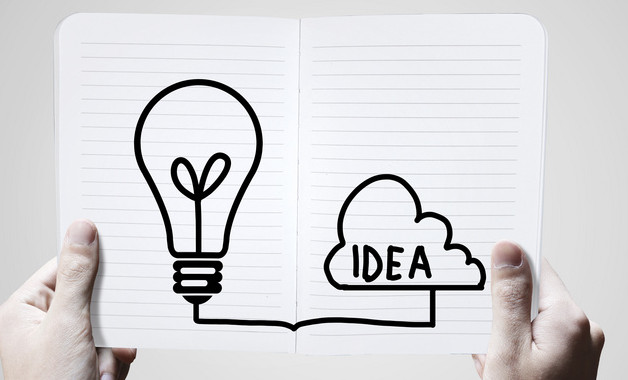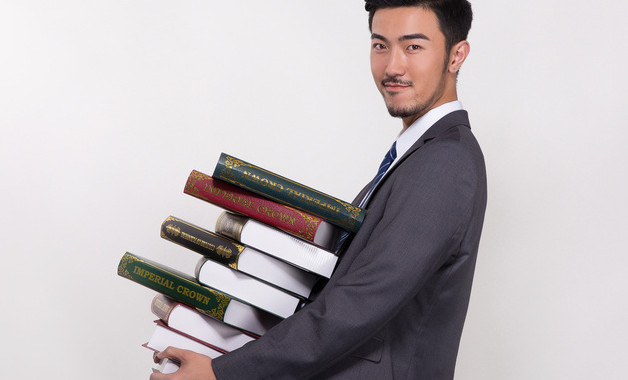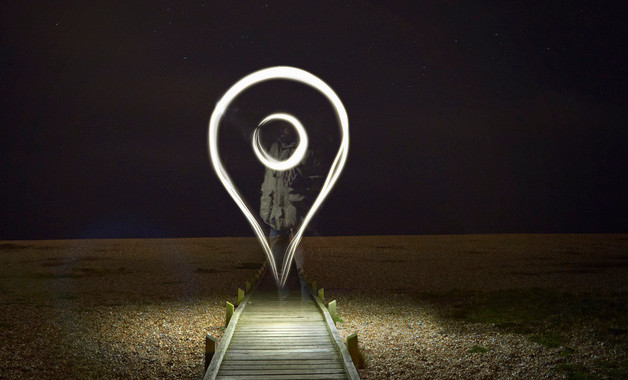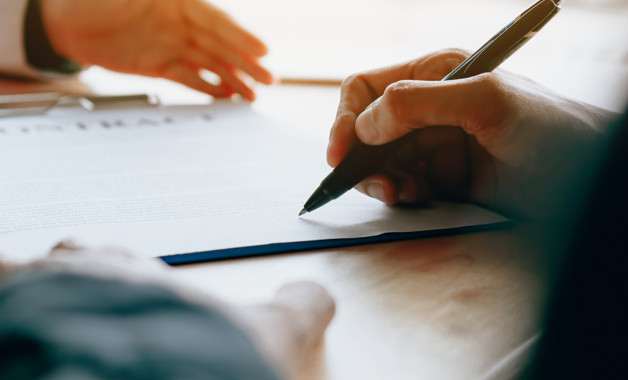
第1篇 英国外交大臣"结束冲突中性暴力全球峰会"上的开幕英语演讲稿
good morning everybody.
angelina jolie and i are delighted to welcome you to the global summit to end sexual violencein conflict.
we began campaigning, as you probably know, two years ago because we believe the time hascome to end the use of rape in war once and for all, and we believe it can be done.
we are convinced this is an issue of international peace and security, that is central toconflict prevention, that it is fundamental to the advancement of women’s rightseverywhere, and above all that it is a moral issue for our generation.
for centuries the rape of women, girls, men and boys has been a feature of conflict andwarfare.
these crimes have been taking place on a vast scale without many people even being aware ofit.
and today the facts are beginning to emerge for all to see, thanks to courageous survivors,ngos, journalists, doctors and activists, many of whom are already here today.
we know how few of these crimes have ever been punished, but because of the impunity, theycontinue today in syria, south sudan and the central african republic, to name just a fewexamples.
what would it say about britain or any other nation if, knowing all this, we chose not to act, wechose to do nothing?
as was said of slavery in the 18th century:
now we know the facts, we cannot turn aside.
and so this week, we are bringing together here governments, experts, civil society, survivorsand members of the public here at the excel centre, in an unprecedented concentration ofeffort and attention on this issue:
today, we are hosting young people from across the world to discuss all the issues and to makerecommendations to the ministers, before the ministers get here.
tomorrow, over 1,000 experts and activists will take part in a multitude of events to addressissues from collecting evidence, to protecting children, to tackling sexual exploitation.
and on thursday, more than 117 countries, 70 ministers, several heads of state, many faithleaders from across the world will gather here.
we want this summit to shatter the culture of impunity for sexual violence, to increasesupport for survivors and to start changing the situation on the ground in the most affectedcountries. there are a whole range of practical actions that we want to achieve:
we will launch an international protocol that sets out how to document and investigatesexual violence, so that those on the ground have the best tools to collect information andevidence to bring perpetrators to justice.
we will ask countries to strengthen their laws so that there are no safe havens for thoseresponsible for warzone sexual violence, we will also urge all countries to train soldiers andpeace-keepers to prevent and respond to sexual violence more effectively.
we want countries to commit new funds for tackling sexual violence in conflict-affectedcountries like somalia and the democratic republic of congo, to do more to protect womenand girls in humanitarian emergencies, and to increase their support for human rightsdefenders who campaign for justice and help for survivors.
and i am pleased to announce this morning that the uk will pledge a further £6 million tosupport survivors of sexual violence in conflict – a further £6 million to help them rebuildtheir lives and rebuild communities.
but governments alone cannot end sexual violence in conflict, so this is much more than justa meeting of ministers.
we also want to help achieve a change in attitudes all over the world to these crimes – and youare part of changing those attitudes.
we want to shift the stigma from survivors onto the perpetrators of these crimes, so that they– not the innocent victims – bear the stigma.
we want to encourage men to speak out, we want to encourage men to speak out – to agreewith us that it is only a weak or inadequate man who abuses women. it is not, it’s not a sign ofstrength, it is the ultimate weakness and shame.
we want to draw attention to the hidden survivors of sexual violence, all those who have feltunable to speak out and who have suffered in silence including men and boys.
we want people around the world to understand the scale of the problem and the urgent needfor action, to recognise the damage it does to international peace and security and to bemobilised and inspired to work within their societies and with us to bear down on this terribleinjustice.
so each hour for the next 84 hours a british diplomatic post somewhere in the world will beholding an event to mirror what we are doing here in london. this event is round the clock allround the world. and i hope you will help us ensure that over the next three and a half daysthat this summit reaches the whole world.
we encourage anyone who cares about this issue to visit and to take part with us here: to seethe multitude of exhibitions, performances and films that are on show, and to join in thediscussions here physically and on social media.
i believe that foreign policy is no longer the sole preserve of governments, that we all need towork together in new ways to tackle global problems and this summit is an example of ourdetermination as the united kingdom to champion that.
angelina and i want to thank all the organisations, performers, activists and individuals heretoday for your inspiring work and your contributions to this effort, and we will urge all theministers to visit and see the exhibitions.
there are some people who say that these problems are so vast that our efforts will be in vain,but they fail to understand what governments, international organisations, civil society andpublic opinion can achieve when we all pull in the same direction.
from the abolition of slavery to the adoption of the arms trade treaty, we have shown that theinternational community can tackle vast global problems in a way that was once consideredto be impossible.
there is power in numbers and if we unite behind this cause we can create an unstoppablemomentum and consign this vile abuse to history.
with every injustice in the world, with every injustice in the world, a moment comes when thetide turns, when the pressure of public opinion and political will reaches a tipping point.
we have a remarkable opportunity over these next few days to build the momentumneeded to tip the world past that point of no return, so that through hard work andcommitment over the coming years we can remove warzone rape from the world’s arsenal ofcruelty.
we can’t do this overnight, we can’t do it overnight. for the british government, and forangelina and for me personally, this summit is not the end of the road for our work, it is inmany ways just the beginning.
over the next few years we must go on to show that what we agree here in london can make abig practical difference.
so in opening the fringe and the exhibitions this morning, we hope you will all work with us andbe part of this historic endeavour.
i am grateful to you all for being here.
thank you very much indeed.
第2篇 克里国务卿就美国与古巴恢复外交关系英语演讲稿
secretary kerry: good afternoon, everybody. thank you for your patience. inwashington a few moments ago, president obama announced that we had reached anagreement to formally re-establish diplomatic relations with the republic of cuba and that wewill reopen embassies in our respective countries.
later this summer, as the president announced, i will travel to cuba to personally take part inthe formal reopening of our united states embassy in havana. this will mark the resumption ofembassy operations after a period of 54 years. it will also be the first visit by a secretary ofstate to cuba since 1945. the reopening of our embassy, i will tell you, is an important step onthe road to restoring fully normal relations between the united states and cuba. coming aquarter of a century after the end of the cold war, it recognizes the reality of the changedcircumstances, and it will serve to meet a number of practical needs.
the united states and cuba continue to have sharp differences over democracy, human rights,and related issues, but we also have identified areas for cooperation that include lawenforcement, safe transportation, emergency response, environmental protection,telecommunications, and migration. the resumption of full embassy activities will help usengage the cuban government more often and at a higher level, and it will also allow ourdiplomats to interact more frequently, and frankly more broadly and effectively, with thecuban people. in addition, we will better be able to assist americans who travel to the islandnation in order to visit family members or for other purposes.
this transition, this moment in history, is taking place because president obama made apersonal, fundamental decision to change a policy that didn't work and that had been inplace not working for far too long. i believe that's leadership, and i appreciate that leadership.and president castro felt similarly that it was time for a change. both leaders agree thatconcentrating on the issues and possibilities of the future is far more productive thanremaining mired in the past. and i would say as we look at the world today with conflicts thatwe see and even these negotiations taking place here in vienna, it is important for people tounderstand that things can change, that leadership can be effective and can make adifference.
this step has been long overdue, and the response of the international community hasreflected the relief and the welcoming that people all over the world feel for this step. this stepwill advance the president's vision – president obama's vision – of an americas whereresponsibilities are widely shared and where countries combine their strengths to advancecommon interests and values. and we, frankly, also believe that this opening will help to changerelationships in the region as a whole.
i want to thank assistant secretary of state roberta jacobson and her team, our team at thestate department, together with those at the white house who have worked to lead thesediscussions with their cuban counterparts in order to enable the normalization of ourdiplomatic relations and the reopening of our embassies. i also want to thank the governmentof switzerland for the essential role that they have played in serving as the united statesprotecting power in cuba for more than 50 years.
and finally, i want to acknowledge the efforts of many in the united states congress, thecuban american community, civil society, faith-based organizations, the private sector, andothers throughout our country and beyond who have supported the start of a new chapter ofrelations between the united states and cuba. i look forward to meeting again with my cubancounterpart, bruno rodriguez, who i saw most recently in panama, and i also look forward togreeting our embassy personnel and the cuban people in havana later this summer. i lookforward to taking part in the reopening of our united states embassy and in the raising of thestars and stripes over that embassy, and the beginning of a new era of a new relationship withthe people of cuba. thank you all very much.
question: mr. secretary, will american diplomats have free access to talk to people –
secretary kerry: we'll talk about all those details later. i'm not going to take questionsright now, folks, but i appreciate very much your patience and interest.
question: just a few words about the negotiations here today, please.
secretary kerry: well, i've got to take these away for that. (laughter.) we are workingvery, very hard. we have some very difficult issues, but we believe we're making progress andwe're going to continue to work because of that. thank you all.
question: foreign minister zarif said there's no deadline. is there?
secretary kerry: thank you very much.
question: is there a deadline, sir?
secretary kerry: we have our own sense of deadline.
第3篇 美国前总统宣布美国与古巴恢复外交关系英语演讲稿
good morning, everybody. please have a seat.
more than 54 years ago, at the height of the cold war, the united states closed its embassy inhavana. today, i can announce that the united states has agreed to formally re-establishdiplomatic relations with the republic of cuba, and re-open embassies in our respectivecountries. this is a historic step forward in our efforts to normalize relations with the cubangovernment and people, and begin a new chapter with our neighbors in the americas.
when the united states shuttered our embassy in 1961, i don't think anyone expected that itwould be more than half a century before it re-opened. after all, our nations are separated byonly 90 miles, and there are deep bonds of family and friendship between our people. but therehave been very real, profound differences between our governments, and sometimes we allowourselves to be trapped by a certain way of doing things.
for the united states, that meant clinging to a policy that was not working. instead ofsupporting democracy and opportunity for the cuban people, our efforts to isolate cubadespite good intentions increasingly had the opposite effect – cementing the status quo andisolating the united states from our neighbors in this hemisphere. the progress that we marktoday is yet another demonstration that we don't have to be imprisoned by the past. whensomething isn't working, we can – and will – change.
last december, i announced that the united states and cuba had decided to take steps tonormalize our relationship. as part of that effort, president raul castro and i directed our teamsto negotiate the re-establishment of embassies. since then, our state department has workedhard with their cuban counterparts to achieve that goal. and later this summer, secretarykerry will travel to havana formally to proudly raise the american flag over our embassy oncemore.
this is not merely symbolic. with this change, we will be able to substantially increase ourcontacts with the cuban people. we'll have more personnel at our embassy. and our diplomatswill have the ability to engage more broadly across the island. that will include the cubangovernment, civil society, and ordinary cubans who are reaching for a better life.
on issues of common interest – like counterterrorism, disaster response, and development –we will find new ways to cooperate with cuba. and i've been clear that we will also continue tohave some very serious differences. that will include america's enduring support for universalvalues, like freedom of speech and assembly, and the ability to access information. and we willnot hesitate to speak out when we see actions that contradict those values.
however, i strongly believe that the best way for america to support our values is throughengagement. that's why we've already taken steps to allow for greater travel, people-to-peopleand commercial ties between the united states and cuba. and we will continue to do so goingforward.
since december, we've already seen enormous enthusiasm for this new approach. leadersacross the americas have expressed support for our change in policy; you heard thatexpressed by president dilma rousseff of brazil yesterday. public opinion surveys in both ourcountries show broad support for this engagement. one cuban said, "i have prepared for thisall my life." another said that that, "this is like a shot of oxygen." one cuban teacher put itsimply: "we are neighbors. now we can be friends."
here in the united states, we've seen that same enthusiasm. there are americans who wantto travel to cuba and american businesses who want to invest in cuba. american colleges anduniversities that want to partner with cuba. above all, americans who want to get to knowtheir neighbors to the south. and through that engagement, we can also help the cubanpeople improve their own lives. one cuban american looked forward to "reuniting families andopening lines of communications." another put it bluntly: "you can't hold the future of cubahostage to what happened in the past."
and that's what this is about: a choice between the future and the past.
americans and cubans alike are ready to move forward. i believe it's time for congress to dothe same. i've called on congress to take steps to lift the embargo that prevents americansfrom travelling or doing business in cuba. we've already seen members from both parties beginthat work. after all, why should washington stand in the way of our own people?
yes, there are those who want to turn back the clock and double down on a policy of isolation.but it's long past time for us to realize that this approach doesn't work. it hasn't worked for 50years. it shuts america out of cuba's future, and it only makes life worse for the cuban people.
so i'd ask congress to listen to the cuban people. listen to the american people. listen to thewords of a proud cuban american, carlos gutierrez, who recently came out against the policy ofthe past, saying, "i wonder if the cubans who have to stand in line for the most basicnecessities for hours in the hot havana sun feel that this approach is helpful to them."
of course, nobody expects cuba to be transformed overnight. but i believe that americanengagement – through our embassy, our businesses, and most of all, through our people – isthe best way to advance our interests and support for democracy and human rights. time andagain, america has demonstrated that part of our leadership in the world is our capacity tochange. it's what inspires the world to reach for something better.
a year ago, it might have seemed impossible that the united states would once again beraising our flag, the stars and stripes, over an embassy in havana. this is what change lookslike.
in january of 1961, the year i was born, when president eisenhower announced thetermination of our relations with cuba, he said: it is my hope and my conviction that it is "inthe not-too-distant future it will be possible for the historic friendship between us once again tofind its reflection in normal relations of every sort." well, it took a while, but i believe thattime has come. and a better future lies ahead.
thank you very much. and i want to thank some of my team who worked diligently to makethis happen. they're here. they don't always get acknowledged. we're really proud of them.good work.









